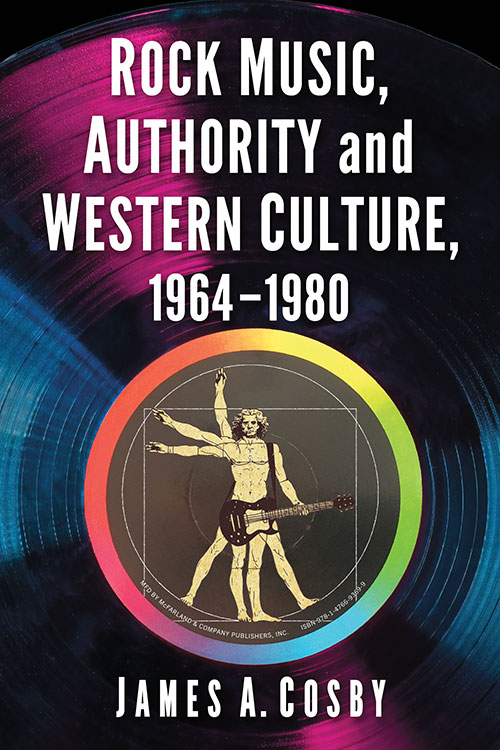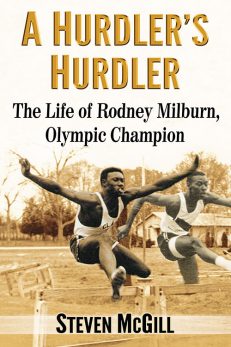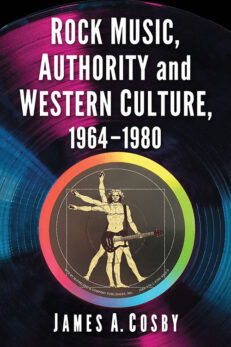Rock Music, Authority and Western Culture, 1964–1980
$39.95
In stock
About the Book
The history of rock and roll music can be seen in a long arc of Western civilization’s struggle for both greater individual expression and societal stability. In the 1960s, the West’s relationship with authority ruptured, in part due to the rock revolution. The lessons and implications of this era have yet to be fully grasped.
This book examines the key artists, music, and events of the classic rock era—defined here as 1964 to 1980—through a virtual psychoanalysis of the West. Over these years, important truths unfold in the stories of British Invaders, hippies, proto-punks, and more, as well as topics to include drugs, primal scream therapy, the occult, spirituality, and disco and its detractors, to name just a few. Through a narrative that is equal parts entertaining, scholarly, and even spiritual, readers will gain a greater appreciation for rock music, better understand the confusing world we live in today, and see how greater individuality and social stability may be better reconciled moving forward.
About the Author(s)
Bibliographic Details
Format: softcover (6 x 9)
Pages: 296
Bibliographic Info: 13 photos, notes, bibliography, index
Copyright Date: 2024
pISBN: 978-1-4766-9369-9
eISBN: 978-1-4766-5135-4
Imprint: McFarland
Table of Contents
Preface 1
1. Introduction 3
Part One: A New Day Dawning, 1950s–1967
2. A New Rebel Yell, the First Half of the Twentieth Century 15
3. Cultural Checkpoints: The United States
and the United Kingdom Enter the ’60s 27
4. Meet the Beatles and the Stones, 1959–1965 33
5. Cultural Checkpoints: The United States, ca. 1965 54
6. The Freaks of Haight-Ashbury, 1965–1966 58
7. The Haight’s House Band, Acid Rock, and the Hippies, 1965–1967 65
8. Warhol’s House Band, 1962–1967 76
9. The Hippie/Freak Lifestyle, ca. 1966 90
10. Modern Mythic Heroes and the Summer of Love, 1966–1967 96
11. Cultural Checkpoints: Vietnam, Political Divisions, and Race, Late 1966–1967 107
Part Two: Upheaval, 1966–1980
12. Integration, the Elvis Factor, the New Blues, and Tutwiler, 1954–Present 113
13. James Brown and Soul Brothers and Sisters, 1954–1960s 121
14. Cultural Checkpoints: War, Assassinations, and Chaos, ca. 1968 132
15. The Beatles Come Full Circle, 1968–1970 139
16. “Do What Thou Wilt” (or Partying with the Stones!), 1968–Early ’70s 145
17. Transitions and Strange Days, End of the ’60s 158
18. A Generation Gap, Late ’60s–Early ’70s 164
19. Cultural Checkpoints: Protests, Imagining a Different World, and a Left-Right Divide Solidifies, Mid-’69–Early ’70s 170
20A. Prog and Full Arenas (Also, Jesus Freaks), Early ’70s 182
20B. A Very Special ’70s Cultural Checkpoint: The Sitcom 187
21. Rock Gods, a Possible Alternate Route to Heaven, and Egos, 1969–1979 191
22. The Big Power Pop Stars, 1972–1977 209
23. Rockers, Dancers, Disco, and Disco’s Demolition, 1970s–1980 219
Conclusion 232
Chapter Notes 237
Bibliography 273
Index 281
Book Reviews & Awards
• A Kirkus Reviews Editor’s Pick
• “In this well-researched, engaging narrative about the evolution of rock and roll, Cosby guides readers through a discussion on popular music and authority, from Elvis Presley’s debut to the hedonistic, drug-fueled excess of the 1970s. … [Cosby] expertly weaves together an intriguing and coherent story of rock and roll’s evolution. … Music historians will find much to like in this fantastic resource…”—Library Journal
• “[An] intricate history of rock music’s Golden Age. … Cosby’s vivid, perceptive prose captures the visceral impact of rock music while unearthing its roots in intense experiences and novel ways of life. The result is a compelling look at why, how, and where rock and roll moved us. A rich, insightful account of how rock music catalyzed a new world.”—Kirkus Reviews
• “Through a narrative that is equal parts entertaining, scholarly, and even spiritual, readers will gain a greater appreciation for rock music, better understand the confusing world we live in today, and see how greater individuality and social stability may be better reconciled moving forward. …ground-breaking study…of immense value…recommended”—Midwest Book Review
• “Readers with the remotest interest in the change wrought by the late 20th century, or who are even slightly curious how social movements mirror the political, will want to clear shelf space for these books, along with anyone looking for well-rounded view of the history of that era. …impressive…should find a place among the great surveys of the era.”—Broad Street Review
• “Cosby interlaces cultural checkpoints among genres and musicians, giving readers a macro context while at the micro level telling rock’s story at its most personal level.”—Jeanie C. Crain, professor of English, emerita, Missouri Western State University





